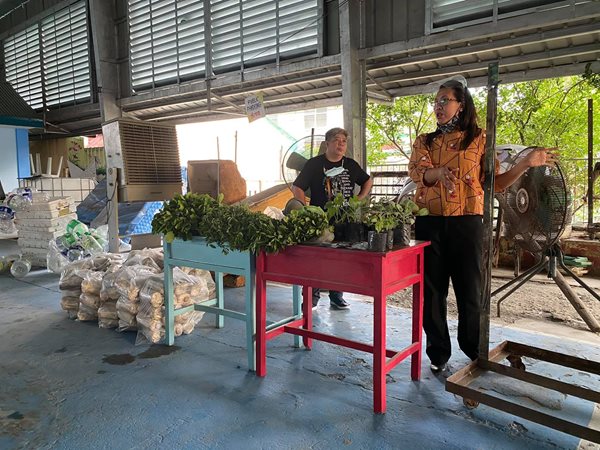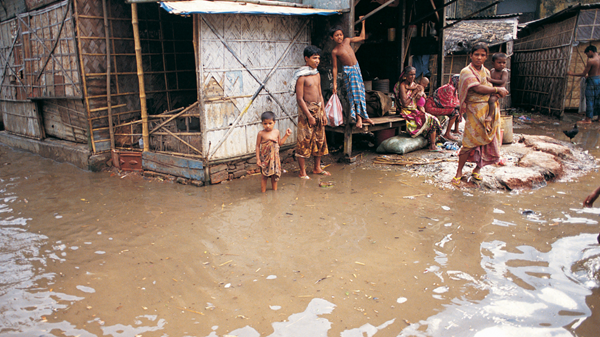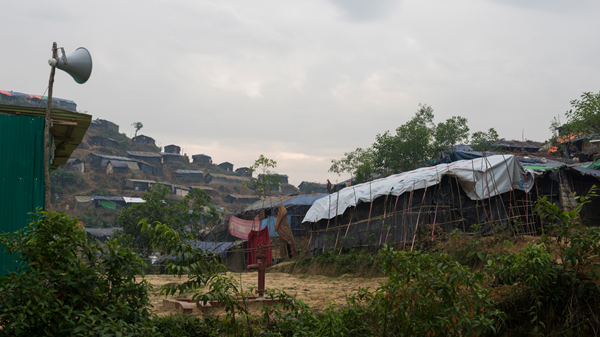That many countries experience high rates of poverty, are more dependent on agriculture and have densely populated coastal regions, means that the impact of climate-related disasters is often severe.
With the increasing frequency and severity of floods, typhoons, landslides, and other climate-related disasters, there is a need for the effective implementation of disaster risk reduction strategies, whilst also reducing vulnerabilities through climate change adaptation policies.
Our courses on these topics have received overwhelmingly positive feedback from participants, some of whom we recently spoke to regarding their experiences of our CCADRR training. Coming from an array of organisations and communities, their backgrounds are diverse, and the knowledge they build with us will be disseminated among the people they work and live with.
Marjorie Sinay-Rodriguez is a registered social worker and educator from Dagupan City in the Philippines. She is currently Assistant Professor/Gender Age and Disability (GAD) Focal Person and Project Implementation Officer at Urdaneta University.
“During the course, I had my own community in mind, where I am a volunteer/partner providing technical support and assistance in terms of disaster risk reduction and management, and climate change adaptation (DRRM-CCA).
After the course, I gave recommendations to our local barangay [district] and proposed a community DRRM-CCA integrated project. Fortunately, it was deliberated upon and the launching of the said project just took place yesterday.
Furthermore, I also proposed and facilitated the mobilization of resources for the community project Bayanihan/oplan Bayanihan for families affected by Typhoon Ulysses. We were able to facilitate relief operations benefiting 2,500 households in Isabela and Rizal areas.
Disaster risk reduction and climate change adaptation are intertwined. We cannot separate one from the other as they co-exist. It is therefore crucial for us to combine or integrate CCA with DRR practices. It should be mainstreamed in terms of policy framework, program implementation and the system itself. There should be a paradigm shift in terms of how our leaders look at this and same with our people.”

Marjorie Sinay-Rodriguez
Another participant on the course is Deputy Manager of an NGO in Bangladesh, working with a trust fund that provides funding for urban adaptation against climate change. He has already begun using his knowledge of CCADRR to help assess proposals from NGO applicants:
“Climate change adaptation helps individuals, communities, organisations, and natural systems to deal with those consequences of climate change that cannot be avoided. It involves taking practical actions to manage risks from climate impacts, protect communities and strengthen the resilience of the economy.
The linkages between climate change, disaster risk reduction, national development and sectoral management are plain to see. Significant knowledge and technical capacities exist, along with necessary international strategies and frameworks for action. Yet these assets have not been brought together in a coherent and effective way, with the sustained participation of all fields of expertise and responsibility, to achieve systematic global reduction in risks. Many problems remain, as is clear from the continued growth of vulnerabilities and disaster impacts.
Developing countries are the most at risk, but all countries are exposed, and none can ignore this whirlpool of issues.”

Ramil Maquilan, Humanitarian Affairs Assistant for OCHA, is based in Cotabato City in the Philippines. With regard to planning future activities, Ramil intends to be more inclusive in relation to climate change adaptation and disaster risk reduction.
“The Philippines is a disaster-prone country that really needs support on knowledge and advocacy regarding CCADRR. Climate change affects me and those around me in terms of mindset. It is important to acknowledge what is happening around the world because of global warming. [The course] made me more aware and more ready in the event of disasters.
Climate change adaptation is important because it affects our way of life as a whole, and it is interconnected with disaster risk reduction and to the environment. DRR practices contribute towards sustaining a future that is livable.”
The effects of climate change are growing ever more severe, not least for the Philippines and Bangladesh. To protect communities from further disasters, and to build resilience against whatever the future may hold, the world will need more people like Ramil and Marjorie. By providing comprehensive CCADRR training, RedR UK will continue to support communities made vulnerable by the climate crisis.
